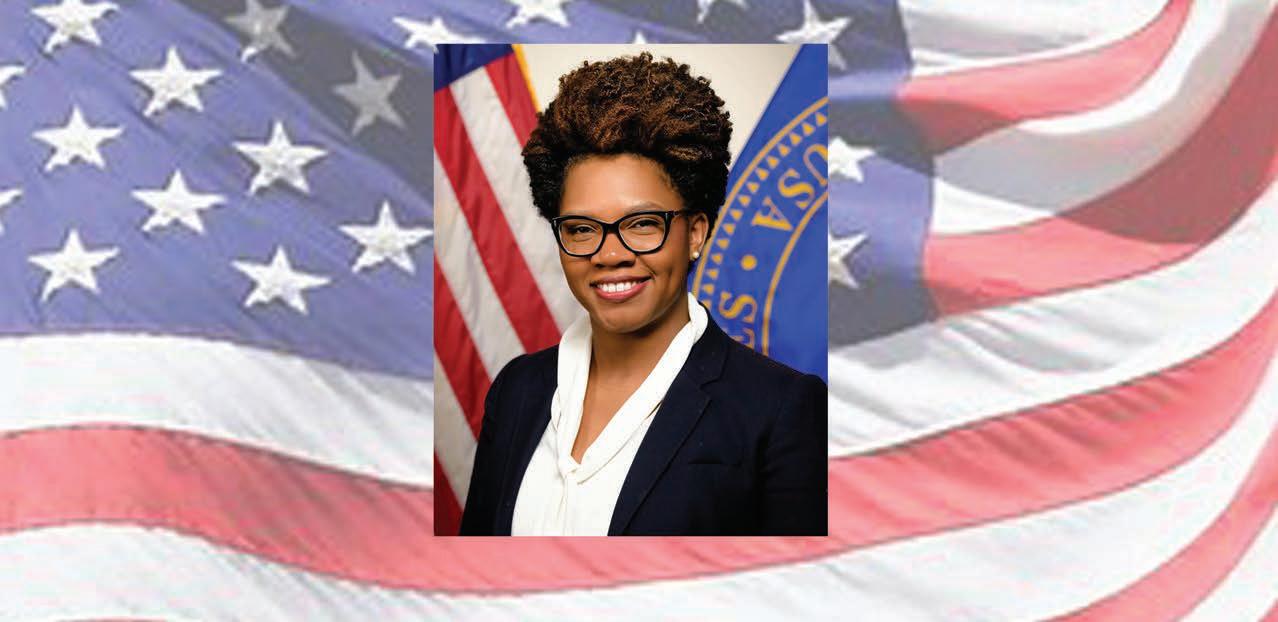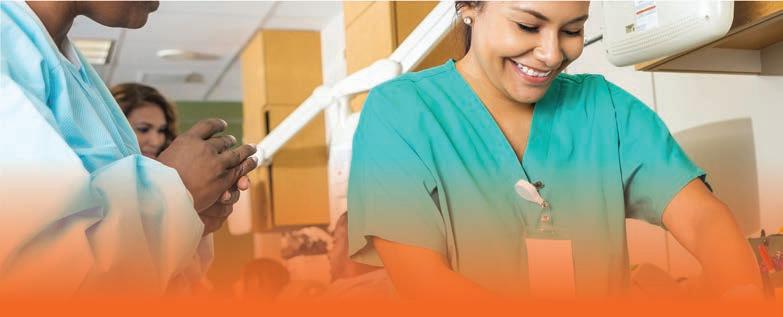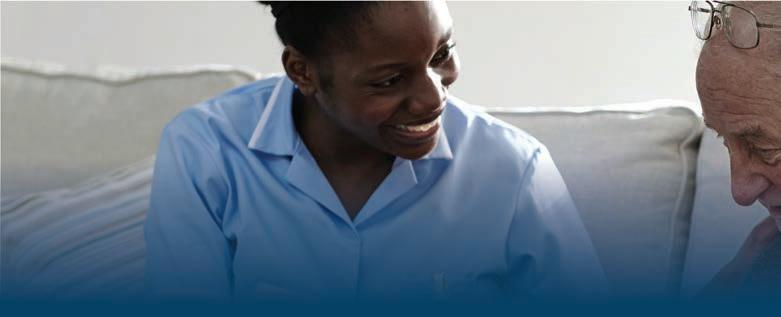
4 minute read
COVID-19 Research Activities
from HWRCs' Annual Report
by UAlbany
HWRC Research Activities to Address Workforce Needs During COVID-19 Pandemic COVID-19
As the country responds to the COVID-19 pandemic, the health workforce has become a prominent issue. The Health Workforce Research Centers (HWRCs) supported by the Health Services and Resources Administration (HRSA) have provided assistance to states and other stakeholders to better inform workforce strategies. Below are brief summaries of contributions by the HWRCs to eff orts in developing eff ective workforce strategies in response to the COVID-19 pandemic.
Advertisement
Carolina Health Workforce Research Center
Center for Health Workforce Studies (CHWS) at the University at Albany Dr. Erin Fraher, Center Director, has been working with North Carolina DHHS Secretary Cohen and Deputy Secretary Ben Money to identify strategies needed to surge and sustain the workforce needed for COVID-19. This includes producing data, synthesizing available evidence and best practices from other states, liaising with licensure boards regarding regulatory changes needed, drafting policy memos, and participating in daily huddles to inform state response. Dr. Fraher and her team developed a series of blogs around North Carolina professions critical to combatting COVID-19. Currently posted: infectious disease, primary care, and critical care nurses. To be posted soon: respiratory therapists, critical care medicine, and long term care. These blogs analyze whether the workforce will be able to surge to staff ICU and acute care beds as well as ventilators. Dr. Fraher is working closely with the NC Board of Respiratory Care to disseminate the results of a survey of health care systems and hospitals regarding RT capacity on the state. Dr. Tom Ricketts is preparing a report on roles preventive medicine physicians play in infectious disease management and public health. As Chair of Council on Graduate Medical Education (COGME), Dr. Fraher is working on COGME’s response to COVID-19. Dr. Jean Moore, director of the Center for Health Workforce Studies at the University of Albany’s School of Public Health, represented the State University of New York on a COVID-19 team established by New York State Governor Andrew M. Cuomo to build health workforce surge capacity during the pandemic. Dr. Moore and the staff of CHWS provided assistance on database development, data analysis, and management of the statewide volunteer database. CHWS provided up-to-date data and information on the state’s health workforce and the educational pipeline for health professions. CHWS helped with outreach to health professionals, education programs, and health care professional associations in eff orts to build surge capacity.
Fitzhugh Mullan Institute for Health Workforce Equity at the George Washington University (Mullan Institute) The Mullan Institute is hosting a mini-series of webinars on Emergency Workforce Strategies to Address COVID- 19. Accompanying resources and summary write-ups are posted alongside links to the recordings on the Mullan Institute website gwhwi.org/covid-19. Topics have included: Expanding Scope of Practice, 1135 Waivers, Tapping Retirees and Other Health Practitioners, Is There a Right to Not Work During COVID 19?, Mobilizing Health Professions Students, Telehealth, The Importance of Standards, Reproductive Health, Behavioral Health, Contact Tracing, and Social Mission of Health Professions Schools.
The Mullan Institute developed a Healthcare Workforce Defi cit Estimator to help state and federal policy leaders prepare for potential health workforce shortages. The Defi cit Estimator allows states to assess the suffi ciency of their health workforce to meet COVID-19 cases. The Defi cit Estimator currently provides estimates for: intensivists, critical care nurses, hospitalists, respiratory therapists and pharmacists.
The Mullan Institute developed The Contact Tracing Workforce Estimator for state and local leaders to prepare for COVID-19 contact tracing in order to safely reopen and protect the health of communities. The preset parameters assume number of case contacts with social distancing and work capacity to include some social needs evaluation and case management. As the dynamics of the pandemic vary regionally, users can adjust variables according to the circumstances and needs of their location.
UCSF Health Workforce Research Center on Long-Term Care/Healthforce Center at UCSF The Healthforce Center developed a rapid-response list of recommendations for California policy leaders to consider to facilitate a surge in health workforce capacity.
Dr. Spetz worked closely with leaders from HealthImpact and the California Hospital Association to develop recommendations to support student employment to meet COVID-19 health care needs.
The Healthforce Center developed an Excel workbook to create staffi ng plans for newly-opened acute care facilities that are caring for COVID-19 patients.
The Healthforce Center is providing technical assistance in creation of job descriptions for alternative care sites for low-acuity and post-acute COVID-19 patients.
University of Michigan Behavioral Health Workforce Research Center The Healthforce Center is continuously crowd-sourcing information from other states to share with state and local leaders involved in the COVID-19 workforce surge. Dr. Angela Beck, Center Director, is assisting with state eff orts related to contact tracing, public health capacity, and behavioral health capacity for COVID-19.
Center researchers updated a comprehensive database of all scope of practice information related to provision of telehealth.
University of Washington Center for Health Workforce Studies (UW CHWS) Center researchers developed a summary of Medicaid emergency authority to inform strategies for fl exing and surging the behavioral health workforce. Dr. Bianca Frogner, Center Director, estimated the number of health care workers who would be aff ected by COVID-19 and this analysis was disseminated to HRSA and other federal leaders.
Dr. Frogner served as a panelist for a webinar hosted by GW Mullan Institute for Health Workforce Equity on state strategies to expand scope of practice of health care workers during COVID-19 pandemic.
Sr. Deputy Director Sue Skillman led a UW CHWS team to develop a brief describing the national landscape of respiratory therapists and their roles during COVID-19.
Dr. Frogner and Sr. Deputy Director Skillman contributed to the National Governors Association efforts to identify policy levers in Washington state to eff ectively deploy the health workforce to meet patient needs across multiple settings during the COVID-19 pandemic.










